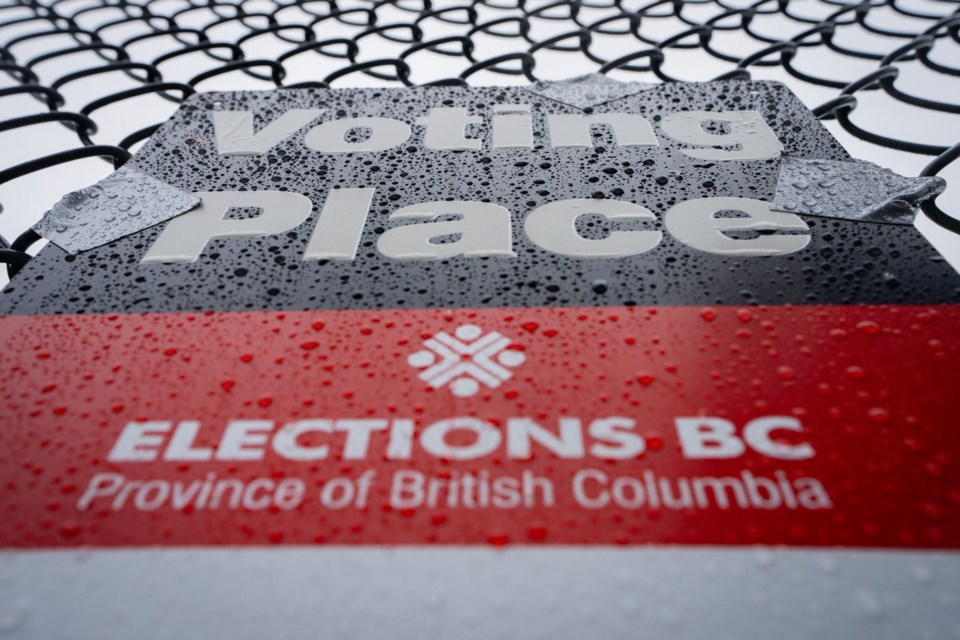SURREY, sa╣·╝╩┤½├Į — Election officials filed into an industrial building in Surrey, sa╣·╝╩┤½├Į, on Thursday to begin a judicial recount for the most narrowly won riding in British Columbia's election, starting with 28 extra ballots found to have gone unreported days after the vote.
The recount will likely decide if the NDP's one-seat majority stands, after it claimed victory in Surrey-Guildford with a margin of 27 votes over the sa╣·╝╩┤½├Į Conservatives, giving Premier David Eby's party 47 seats in the legislature.
Jill Lawrance, executive director of electoral operations at Elections BC, told reporters that officials would be counting 19,090 ballots in the judicial recount, which includes more than 1,600 votes that were cast outside of the riding.
She said the recount — which is being done by 10 teams of two counters and two scrutineers — is expected to roll into Friday, and started with the examination of envelopes that contain the 28 ballots that Elections BC said were unreported because of a data-entry mistake.
"What initially happened was we discovered 14 and that's what started the investigation, but there are 28 total," she said of the unreported ballots.
A makeshift courtroom was constructed using wooden desks and grey room dividers where Supreme Court Justice Kevin Loo called the session into order on Thursday, before addressing workers and getting the hand-count started.
The teams of counters, who lined tables along the perimeter of the warehouse, were paired with scrutineers from the New Democrats and the sa╣·╝╩┤½├Į Conservatives and could be seen holding ballots in the air and agreeing on each vote.
Lawrance said teams "make their best assessment of the intent of the voter."
"If scrutineers raise an objection, both parties come to the table and if they agree on the vote, the judge has indicated he doesn't need to see it," Lawrance explained Thursday.
"But if there's a disagreement about who that vote should count for, that ballot will be brought to the judge, he will look at the ballot, hear arguments from both sides and determine who the vote should count for."
About an hour after the count began, the judge was informed by officials that there were two contested ballots.
Loo called the court to order and heard statements from counsel for the NDP and sa╣·╝╩┤½├Į Conservatives.
The first disputed ballot had three entirely filled in circles — next to NDP, Greens and an Independent candidate — but left the circle next to Conservative candidate, Honveer Singh Randhawa, blank.
The Conservative's counsel argued the voter's intent was to vote for the conservatives, while the NDP's lawyer argued that it appeared that the individual voted for several candidates.
The second ballot in question appeared to have marks for both the Conservatives and the New Democrats. The NDP counsel told the judge the marking next to Randhawa's name was a hesitation mark, while the Conservative's lawyer argued it showed votes for two candidates and should therefore be discounted.
The judge rejected both ballots.
A full recount is also taking place in Kelowna Central, which was narrowly claimed by the sa╣·╝╩┤½├Į Conservatives, while a partial recount will take place in Prince George-Mackenzie to tally votes from an uncounted ballot box that was found to contain about 861 votes.
The Prince George-Mackenzie recount cannot change the outcome, with the sa╣·╝╩┤½├Į Conservatives ahead by more than 5,000 votes.
Eby said in a statement Wednesday that the judicial recounts will ensure every vote is counted. After those recounts, he said sa╣·╝╩┤½├Į residents want to see "urgent action" on priorities including affordability and housing, health care, and building a strong economy.
This report by The Canadian Press was first published Nov. 7, 2024.
Brieanna Charlebois, The Canadian Press



